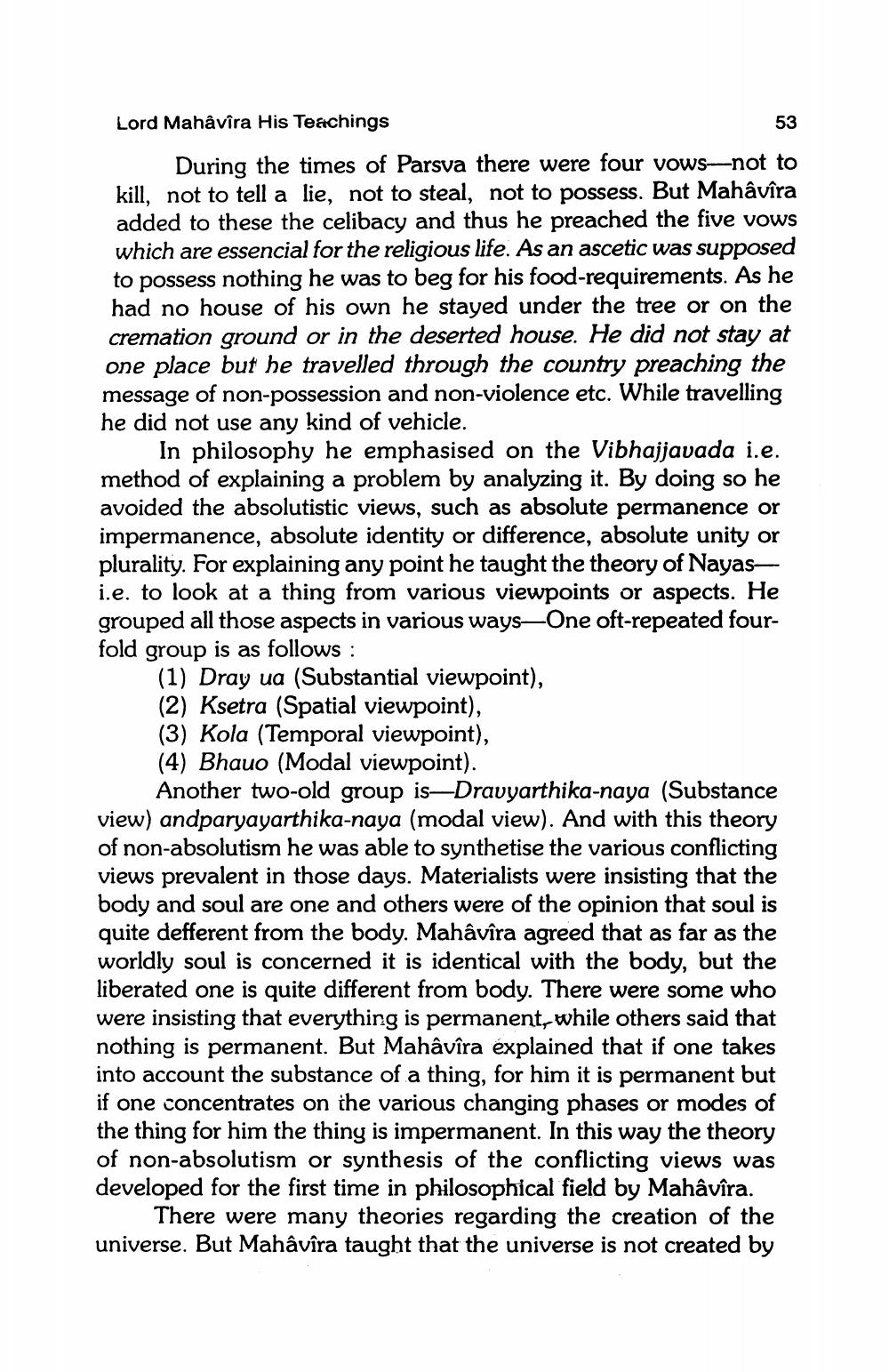________________
Lord Mahavira His Teachings
53
During the times of Parsva there were four vows—not to kill, not to tell a lie, not to steal, not to possess. But Mahâvîra added to these the celibacy and thus he preached the five vows which are essencial for the religious life. As an ascetic was supposed to possess nothing he was to beg for his food-requirements. As he had no house of his own he stayed under the tree or on the cremation ground or in the deserted house. He did not stay at one place but he travelled through the country preaching the message of non-possession and non-violence etc. While travelling he did not use any kind of vehicle.
In philosophy he emphasised on the Vibhajjavada i.e. method of explaining a problem by analyzing it. By doing so he avoided the absolutistic views, such as absolute permanence or impermanence, absolute identity or difference, absolute unity or plurality. For explaining any point he taught the theory of Nayasi.e. to look at a thing from various viewpoints or aspects. He grouped all those aspects in various ways—One oft-repeated fourfold group is as follows :
(1) Dray ua (Substantial viewpoint), (2) Ksetra (Spatial viewpoint), (3) Kola (Temporal viewpoint), (4) Bhauo (Modal viewpoint).
Another two-old group is—Dravyarthika-naya (Substance view) andparyayarthika-naya (modal view). And with this theory of non-absolutism he was able to synthetise the various conflicting views prevalent in those days. Materialists were insisting that the body and soul are one and others were of the opinion that soul is quite defferent from the body. Mahâvîra agreed that as far as the worldly soul is concerned it is identical with the body, but the liberated one is quite different from body. There were some who were insisting that everything is permanent, while others said that nothing is permanent. But Mahâvîra explained that if one takes into account the substance of a thing, for him it is permanent but if one concentrates on ihe various changing phases or modes of the thing for him the thing is impermanent. In this way the theory of non-absolutism or synthesis of the conflicting views was developed for the first time in philosophical field by Mahâvîra.
There were many theories regarding the creation of the universe. But Mahâvîra taught that the universe is not created by




